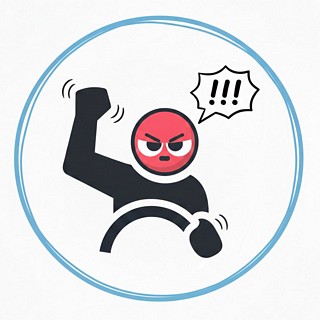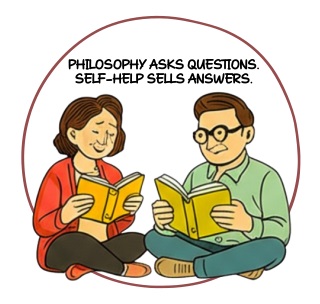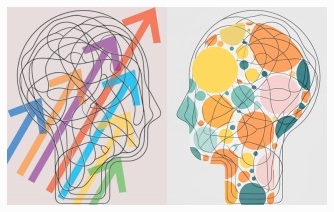 Minor annoyances can drain you more than you realize. They don’t vanish after the moment passes; they linger, filling every bit of mental space you allow them. The irritation itself is brief, but the endless reruns in your head are what exhaust you. You spend hours rehearsing imaginary arguments, and the cost is far greater than the incident itself.
Minor annoyances can drain you more than you realize. They don’t vanish after the moment passes; they linger, filling every bit of mental space you allow them. The irritation itself is brief, but the endless reruns in your head are what exhaust you. You spend hours rehearsing imaginary arguments, and the cost is far greater than the incident itself.
I call this the curse of the small. Every day you face irritations: traffic jams, bad service, a coworker stealing credit, a partner stacking the dishwasher in a way that offends your sense of order. If you don’t stop them early, they grow. They fester until they dominate your mood and distort your perspective. Your peace of mind and your productivity depend entirely on how you respond.
Think about it: when the mind is occupied with greater labors, the small things lose their sting. Yet as life grows easier, the threshold for irritation falls. In the absence of real threats, even a slow Wi-Fi signal is treated as if it were a crisis.
You need circuit breakers to recognize the triggers and stop the spiral. The most effective one I’ve seen is the 5-5-5 Rule. Ask yourself: Will this matter in 5 days? Will this matter in 5 weeks? Will this matter in 5 months? If the answer is no, don’t spend more than 5 minutes on it. This rule forces perspective and prevents minor frustrations from hijacking your day.
Richard Carlson’s influential 1996 bestseller Don’t Sweat The Small Stuff… And It’s All Small Stuff makes the same point. You don’t need to reinvent yourself to deal with anger or angst. You need perspective. Step back and you see that most annoyances are too small to deserve your energy.
Idea for Impact: The goal isn’t to eliminate annoyances. The goal is to build a mind too big for them to fill. When you let go, you reclaim your peace, your focus, and your joy.
The little annoyances will persist. Your response to them need not.

 In
In  The Japanese aesthetic of
The Japanese aesthetic of 
.jpg)
 Self-help and philosophy both claim to enhance life, but they approach the task from opposite ends. Self-help assumes you know what you want—success, happiness, confidence—and hands you the tools to get there. Philosophy asks whether those goals are worth wanting in the first place.
Self-help and philosophy both claim to enhance life, but they approach the task from opposite ends. Self-help assumes you know what you want—success, happiness, confidence—and hands you the tools to get there. Philosophy asks whether those goals are worth wanting in the first place..jpg)
 A thing can feel bad and be right.
A thing can feel bad and be right..jpg)
 At its core, the book pushes a blunt idea:
At its core, the book pushes a blunt idea:  Regret is a backward-looking emotion. It’s an evaluation of past choices—regret arises from the discrepancy between what was and what could have been. Letting go of it is tough because it’s tangled with
Regret is a backward-looking emotion. It’s an evaluation of past choices—regret arises from the discrepancy between what was and what could have been. Letting go of it is tough because it’s tangled with